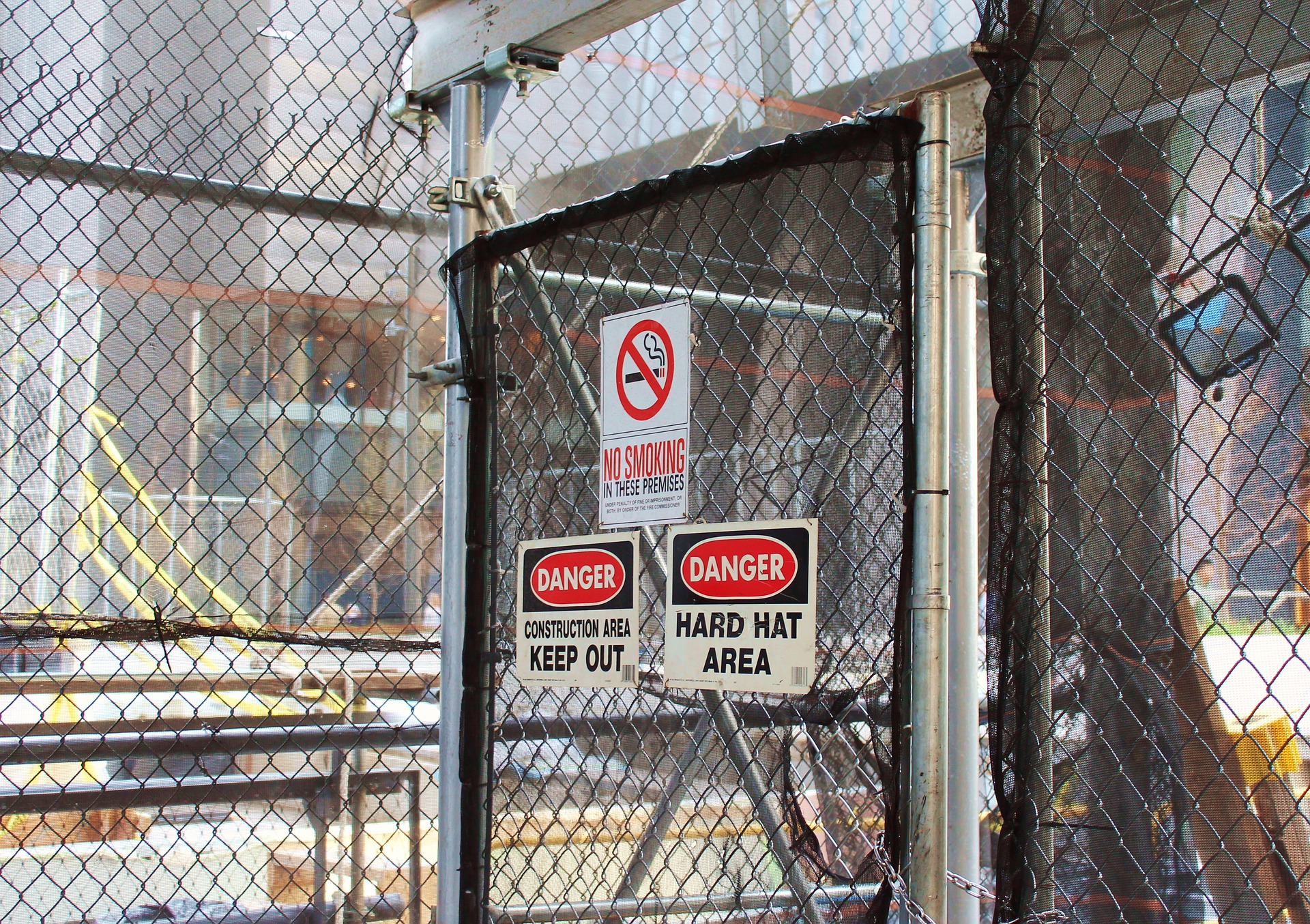

Accidents happen! Even when we all try our best to provide a safe working environment and follow the best safety guidelines for our workers, accidents can still occur. You can’t plan or predict an accident—that’s why it’s called an accident, but you can plan and prepare for your company’s response and liability when an accident does occur. That is why it is so essential to understand your responsibility before an accident happens and be able to protect yourself from potential accidents through your construction contracts. Throughout our blogs this month, we will discuss safety terms, legal statutes that can affect your safety liabilities, and indemnification clauses. In this article, we’ll review some common safety terms in construction contracts.
It is always important to read the entire contract before you sign it. However, we often see clients that only read what they deem to be the essential terms while overlooking key aspects. Ignoring the safety terms within a construction contract can potentially have a severe impact on a project, or your business if an incident occurs.
In 2016, the Occupational Safety and Health Administration (OSHA) reported an alarming statistic that over 20% of worker fatalities were in the construction industry. There is a large variety of reasons why an accident and/or injury can happen on an active construction project. While following the OSHA guidelines and providing proper safety training and equipment can help lower the number of accidents and/or injuries, you can’t foresee the unforeseeable. This is why it is so important to understand and negotiate fair safety terms into your contract. Certain contract terms, such as which contractor has the responsibility to ensure the safety of the site, could cause liability to fall on your company. If you didn’t review the safety terms within the contract before signing, you might not even realize you hold that liability until after the accident and/or injury has already taken place.
Another common term we see in construction contracts that can affect safety is a “time is of the essence” clause. This clause can mean your company will face constant challenges to meet deadlines and stay within budget. Be careful to not let those time constraints lead to shortcuts and increased risks to worker safety. If there is a “time of the essence clause,” it may be beneficial to add in extra safety terms into your contract to protect your company from liability.
When looking over safety terms within your contract, you may see requirements to provide or attend safety training for your employees or other contractors. Make sure that your bid properly reflects any additional costs that these safety terms put on your company. If you were unaware of these safety terms before you submitted your bid, now is the time to negotiate a new price with these additional expenses added in. The safety terms may also give you instructions on how to handle hazardous materials.
Many times, the prime contract identifies the responsibilities of the original contractor, then the original contractor passes those responsibilities and obligations down to the subcontractors. This is why we always advise that our clients ask to review the prime contract before signing a subcontract.
If you fail to meet the obligations set out in your contract, and an incident occurs, you could very likely be held liable, regardless of whose employee was injured! It is incredibly essential to read your contract and try and go above and beyond the safety requirements to keep the worksite safe for all involved and prevent future liabilities.
In our next blog, you will learn how to build worker safety into your daily practices. This blog is part of our 2020 Mastering the Subcontract series. Come back each week as we deep dive and pull apart everything you need to know about a subcontract.
Karalynn Cromeens is the Owner and Managing Partner of The Cromeens Law Firm, PLLC, with over 17 years of experience in construction, real estate, and business law. A published author and passionate advocate for contractors, she has dedicated her career to protecting the businesses her clients have built. Karalynn is on a mission to educate subcontractors on their legal rights, which inspired her books Quit Getting Screwed and Quit Getting Stiffed, as well as her podcast and The Subcontractor Institute.

